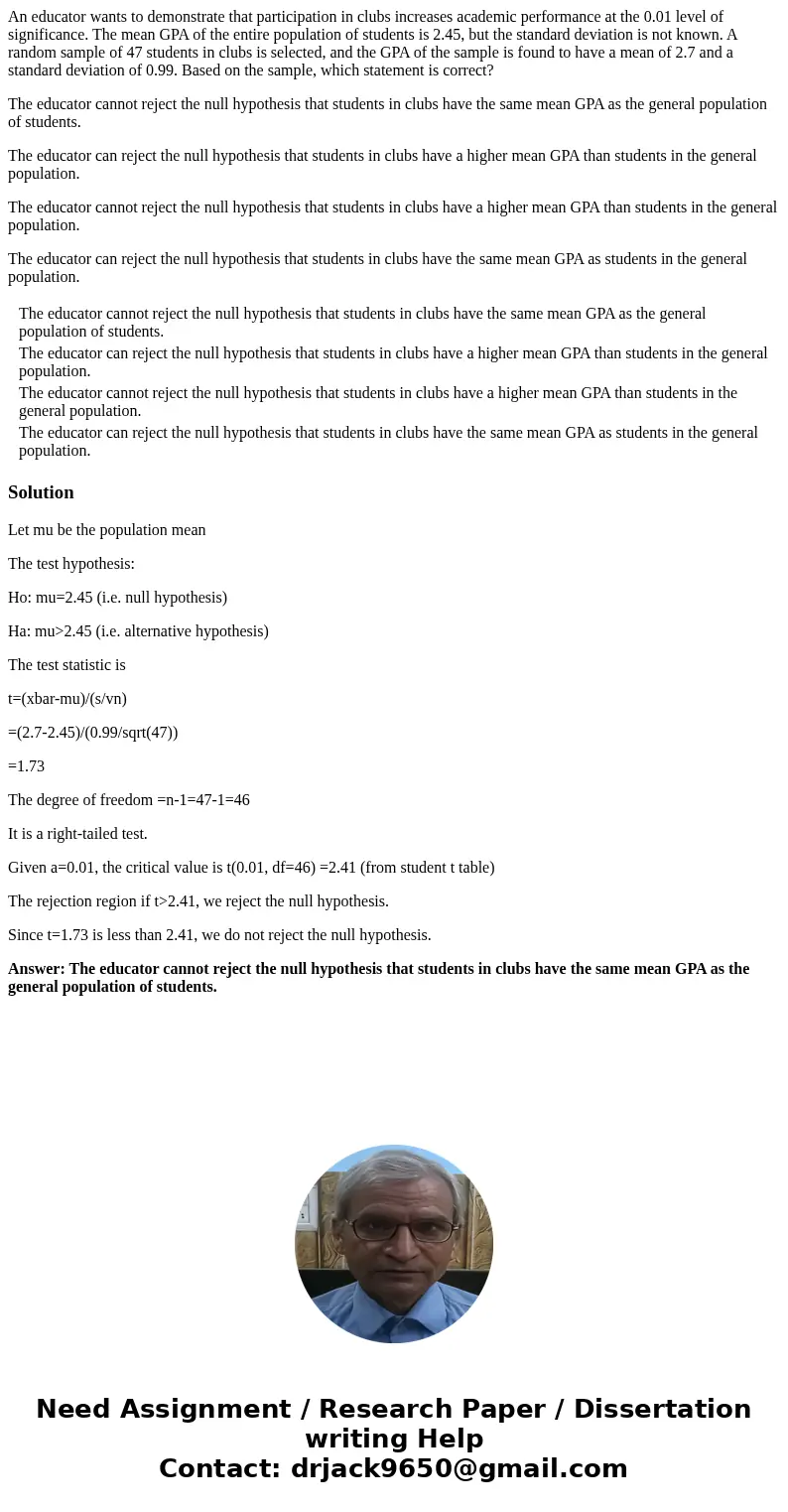An educator wants to demonstrate that participation in clubs
An educator wants to demonstrate that participation in clubs increases academic performance at the 0.01 level of significance. The mean GPA of the entire population of students is 2.45, but the standard deviation is not known. A random sample of 47 students in clubs is selected, and the GPA of the sample is found to have a mean of 2.7 and a standard deviation of 0.99. Based on the sample, which statement is correct?
The educator cannot reject the null hypothesis that students in clubs have the same mean GPA as the general population of students.
The educator can reject the null hypothesis that students in clubs have a higher mean GPA than students in the general population.
The educator cannot reject the null hypothesis that students in clubs have a higher mean GPA than students in the general population.
The educator can reject the null hypothesis that students in clubs have the same mean GPA as students in the general population.
| The educator cannot reject the null hypothesis that students in clubs have the same mean GPA as the general population of students. | ||
| The educator can reject the null hypothesis that students in clubs have a higher mean GPA than students in the general population. | ||
| The educator cannot reject the null hypothesis that students in clubs have a higher mean GPA than students in the general population. | ||
| The educator can reject the null hypothesis that students in clubs have the same mean GPA as students in the general population. |
Solution
Let mu be the population mean
The test hypothesis:
Ho: mu=2.45 (i.e. null hypothesis)
Ha: mu>2.45 (i.e. alternative hypothesis)
The test statistic is
t=(xbar-mu)/(s/vn)
=(2.7-2.45)/(0.99/sqrt(47))
=1.73
The degree of freedom =n-1=47-1=46
It is a right-tailed test.
Given a=0.01, the critical value is t(0.01, df=46) =2.41 (from student t table)
The rejection region if t>2.41, we reject the null hypothesis.
Since t=1.73 is less than 2.41, we do not reject the null hypothesis.
Answer: The educator cannot reject the null hypothesis that students in clubs have the same mean GPA as the general population of students.

 Homework Sourse
Homework Sourse